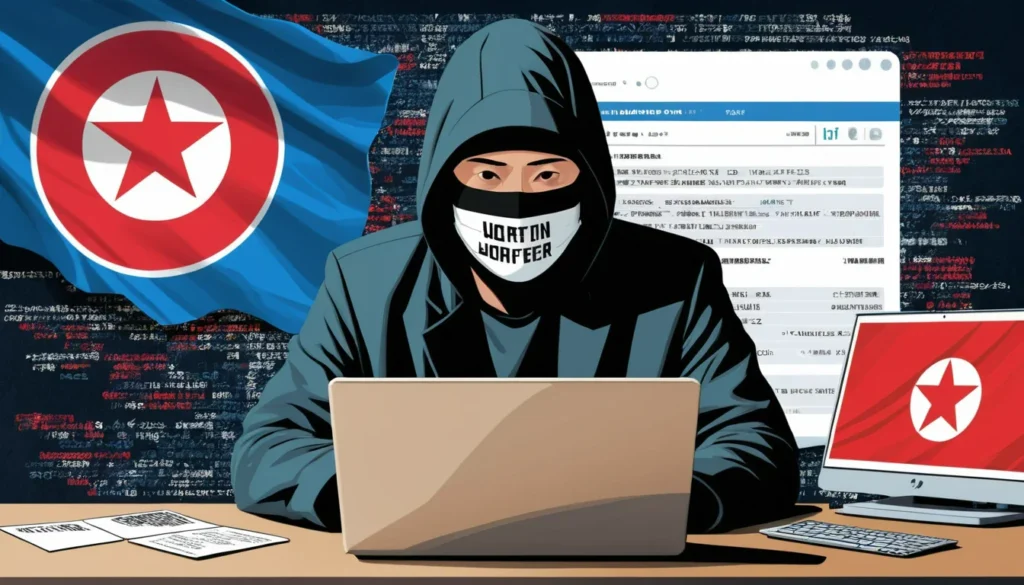Overview
North Korean cyber operatives have successfully infiltrated U.S. tech companies by posing as remote job candidates using fake identities and false documentation. These covert operations aim to generate revenue for the sanctioned regime while compromising sensitive corporate systems. The U.S. government has issued multiple alerts, urging firms to tighten their hiring and verification processes.
Key Facts
- North Korean IT workers are obtaining remote work contracts in U.S. tech firms using stolen or synthetic identities.
- These workers are funneling earnings and data back to the North Korean government.
- The U.S. Department of Justice and FBI have jointly published alerts and advisories.
- Fake LinkedIn profiles, spoofed resumes, and forged documents are commonly used.
- Victim organizations include software development companies, cryptocurrency startups, and cloud service providers.
What’s Verified and What’s Still Unclear
Confirmed:
- North Korean workers are being placed in U.S. firms under false pretenses.
- Earnings and intellectual property are being diverted to the regime.
- Multiple arrests and investigations are ongoing.
Unclear:
- The full scale of infiltration across industries.
- Whether any critical infrastructure or defense contractors were affected.
- The exact number of compromised companies.
Timeline of Events
- 2020–2022: Initial signs of fake resumes and LinkedIn profiles noticed by HR departments and cybersecurity researchers.
- May 2022: Joint advisory issued by FBI, DoJ, and State Department.
- Early 2023: Arrests of intermediaries helping North Koreans obtain false documents.
- Mid–2024: Reports of active North Korean workers embedded in U.S.-based development teams surface.
- June 2025: U.S. Cybersecurity and Infrastructure Security Agency (CISA) confirms ongoing investigations.
Who’s Behind It?
The hacking activities are linked to North Korean state-sponsored groups, particularly Lazarus Group and affiliated subgroups operating under Bureau 121. These units work under North Korea’s General Bureau of Reconnaissance, focusing on financial cybercrime, espionage, and covert revenue generation.
Public & Industry Response
- HR teams are tightening background checks and incorporating new identity verification tools.
- Tech firms are reassessing remote work policies and introducing geo-location restrictions.
- The public, especially job seekers, are being advised to stay cautious of fraud and impersonation cases.
- Cybersecurity experts are calling this a wake-up call for the global workforce and talent acquisition strategies.
What Makes This Attack Unique?
Unlike conventional cyberattacks, this method doesn’t rely on malware or zero-day exploits but instead uses deception in recruitment processes. It’s a blend of cyber-espionage and economic warfare, leveraging the shift to remote work as a vulnerability.
Understanding the Basics
Why North Korea does this:
Due to sanctions and financial isolation, North Korea funds its regime and weapons programs through cybercrime. Embedding operatives in Western firms provides both financial gain and intelligence access.
Tactics Used:
- Deepfake interviews
- Identity theft
- Fake GitHub/Stack Overflow accounts
- Use of VPNs to mask geo-location
What Happens Next?
- U.S. agencies may push for stricter immigration and employment background protocols.
- Tech companies will likely increase investment in insider threat detection.
- A new wave of cybersecurity training for HR and recruitment teams is expected.
- More international cooperation to blacklist and block North Korean IP and identity laundering networks.
Summary
The infiltration of U.S. tech firms by North Korean hackers under false identities marks a sophisticated evolution in cyber warfare. As geopolitical tensions rise, it’s critical for companies to understand that cybersecurity now extends beyond firewalls into the HR department. Vigilance, verification, and cross-departmental coordination are the need of the hour.
